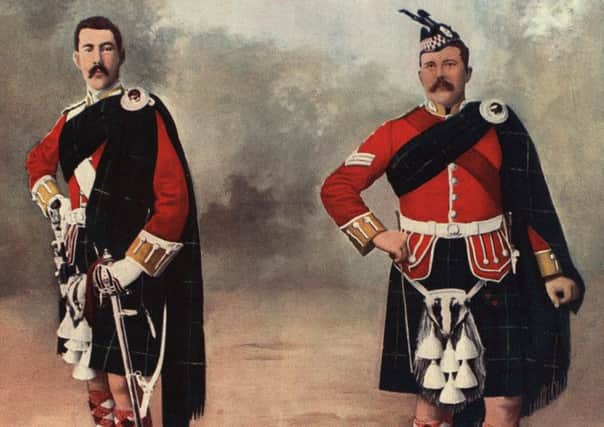Call to honour Scots expats who died in forgotten World War I battle


Now, nearly a century after a long forgotten battle which saw Scottish expats and South African troops fight side by side to stave off a large-scale German offensive, calls have been made to honour those who made the ultimate sacrifice.
The son of a Scot who fought in World War I as part of the little-known South African Scottish regiment has urged Prime Minister Theresa May to recognise those men who fought for king and country amid the horrors of Marrieres Wood in northern France.
Advertisement
Hide AdAdvertisement
Hide AdAt a crucial juncture in the war in spring 1918, the Germans launched the Ludendorff Offensive, a massive attack on the Western Front designed to deliver a knockout blow to the Allies ahead of the arrival of more than one million US troops.
With the British forced to retreat as the Germans unleashed the biggest artillery bombardment of the entire war, the front line was all but abandoned, save for 500 soldiers from the so-called South African Scottish, a regiment which included hundreds of Scots emigrants who signed up to return to Europe and fight for their homeland. .
They included John Thomson Wilson Goldie from Annan, a telegraphist who had emigrated to South Africa in 1911, and later volunteered with the Transvaal Scottish regiment.
At Marrieres Wood, a wooded hilltop in the Somme, he and his colleagues faced down hordes of German infantrymen, who were supported by trench mortars and batteries of field guns.
Hundreds from the South African Scottish fell, but the regiment, which came under the orders of the 9th (Scottish) Division, did not cede any ground.
Only after seven hours, when they ran out of ammunition, did the 100 or so survivors, among them Goldie, a 21-year-old signaller,finally surrender.
Their courage in the battle on Sunday 24 March 1918 was hailed at the time as a pivotal moment in the war.
Buchan, who produced a history of the South African contribution to the conflict in 1920, wrote how “it is not too much to say that on that fevered Sabbath, the stand of the brigade saved the British front.”
Advertisement
Hide AdAdvertisement
Hide AdIn his 1921 book, The History of the 9th (Scottish) Division, John Ewing concurred as much, noting how the “glorious stand” of the South African Scottish had “already achieved a prominent place in the annals of the British empire.”
He added: “For over seven hours the South Africans had kept back, in addition to the infantry, all the artillery and transport which were to advance by the Bouchavesnes to Combles road, and the delay was of inestimable value to our troops in rear.”
Today, however, the actions of the South African Scottish barely register a footnote in histories of the conflict, an oversight Ian Goldie believes should be corrected.
“My dad would not speak about the war itself but always said the South African Scottish had not been awarded their campaign medals whilst all the other regiments in the 9th Division got theirs,” he said.
“He and his comrades felt they had the right to have them. He said it felt that they were not appreciated.”
In recent months, Goldie, 78, has written to both Downing Street and the Ministry of Defence, imploring them to make amends. But in a letter, the MoD told him it is UK Government policy “not to revisit the decisions of our forebears” when considering battle honours.
That, in Goldie’s view, is not good enough. He has launched a petition to bolster his cause and describes the ongoing omission as a miscarriage of justice which should be righted in time for the centenary of the battle next month.
“These men were fighting for king and country, and had some part of keeping Britain free,” he added.
Advertisement
Hide AdAdvertisement
Hide AdRecords from the formation of South African Scottish show just how important a role Scots played in its engagements.
Out of 1,282 men, more than a quarter were Scottish, with a sizable number of the South African-born servicemen of Scottish descent.
According to Dr Yvonne McEwen, project director at the Scotland’s War project at the University of Edinburgh, their heroics should be recognised 100 years on.
“I think the contribution of the South African Scottish has been overlooked,” she said. “I met a gentleman at an event recently who had visited South Africa and he was shocked at the number of Scottish names on a war memorial, and why that chapter of history was not acknowledged.
“We never fail to recognise the Scots who fought in Australia and Canada in quasi-Scottish regiments, but we do not focus at all on South Africa. I think it would be only proper to correct that.”